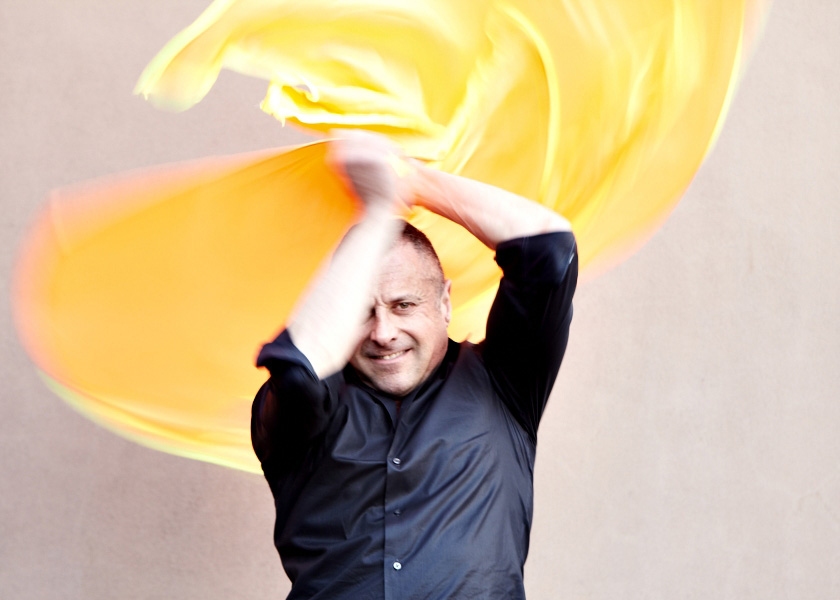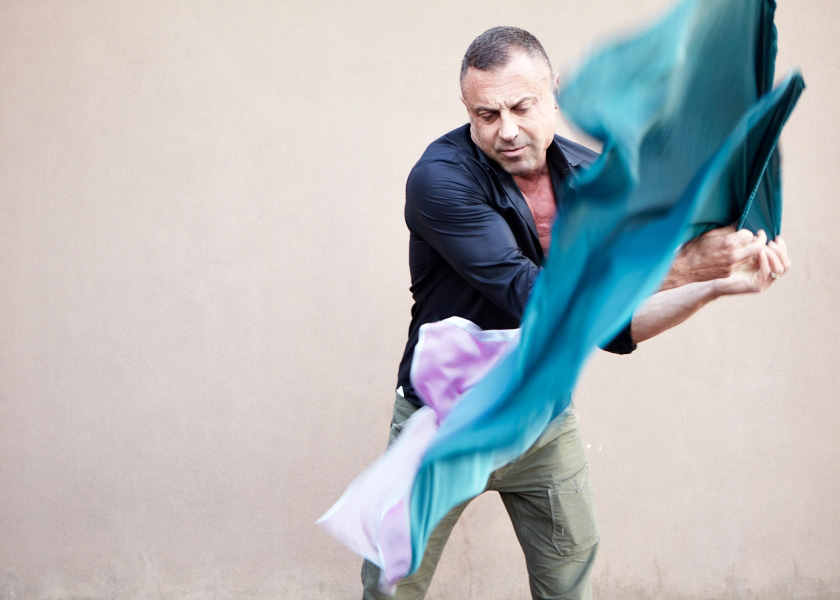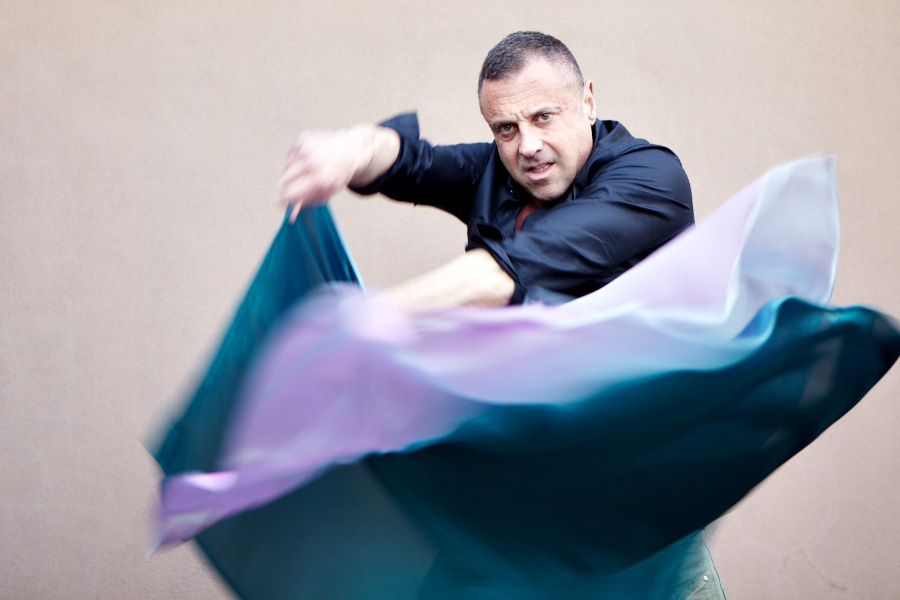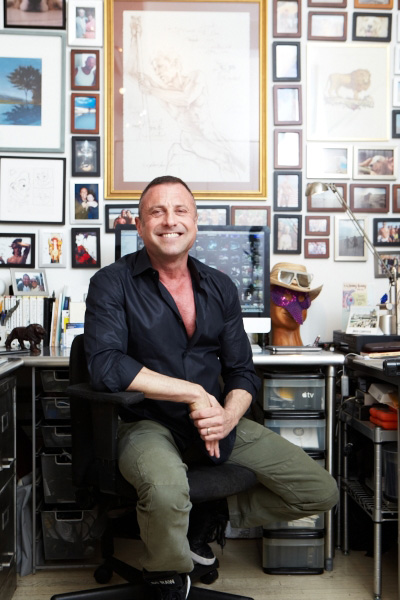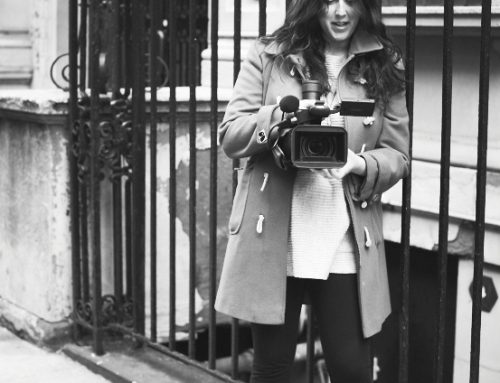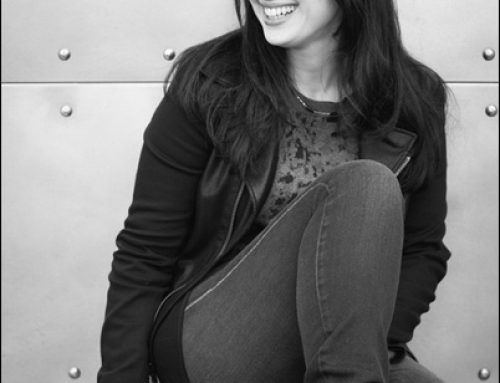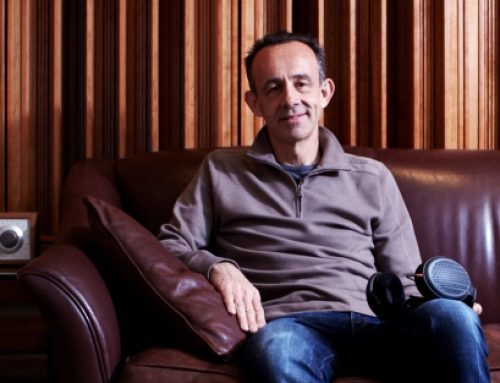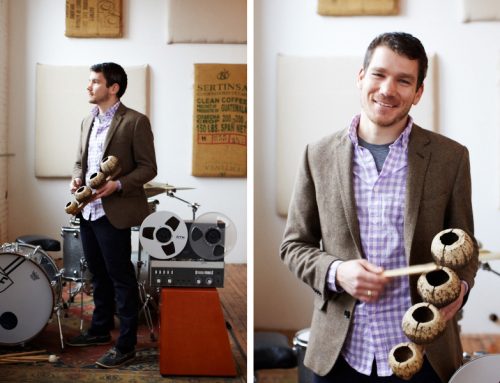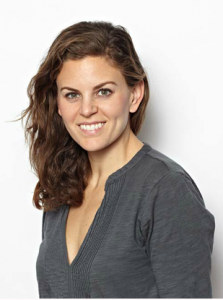“I think if you give your all to whatever task you’re assigned, people tend to notice, and they’ll give you more. That’s the way it’s always been for me, and it’s a very gratifying way to be.” – Brad Carpenter
Q&A with Brad Carpenter:
Please tell me a little bit about yourself, who you are, and where you are from.
I was born and raised in Des Moines, Iowa. A Jewish boy named Brad Carpenter. From Des Moines. Go figure. The combo of those traits tends to confuse my New York friends. But what can I say? My grandfather was a carpenter when he came to this country, and you know how that usually worked out. “Bradley” is a good Welsh name meaning “Broad Meadow” or “Open Minded,” but I think my mom just wanted a “B” name, so I guess it could have been worse… Except that I feel obligated to be open minded.
Where do you work and what does your job entail?
I’m currently a Co-Producer on HBO’s “Boardwalk Empire,” as well as a Producer on Showtime’s “Nurse Jackie.” Premium pay cable tends to have short seasons, so sometimes you get lucky and can work on two shows over the course of the year. I’ve been really lucky, because they’re both fantastic shows! On the shows that I produce, I oversee all of Post Production, which includes picture editorial, color correction, VFX, sound editorial and mixing, as well as composer score and music licensing. As the guy responsible for making sure we have everything we need in order to see the vision through, I usually get to collaborate at some point with everyone along the line. It’s a great job, and if my Post team and I have done our jobs right, you’ll never know we were there, you’ll just be sucked into the story and on the ride.
What has been your own personal path that led you to where you are today?
I graduated from Stanford University with a Bachelor of Arts in Drama (much to my parent’s chagrin), then left for New York to purse a career in acting. This was long before there was so much television shot out here, but I still did better than most. I worked in commercials, had some day player roles in soaps, did LOTS of unpaid Off Off Broadway gigs to get seen, and did a lot of tours and summer stock to get good roles and make some money. When in New York doing mostly unpaid gigs I paid the rent by working for a very prestigious catering company. In time I had become a captain for them, sometimes managing sit-down dinners for 1000 people. I realized that my catering career had completely overtaken my acting career, and that I needed to somehow meld my money earning capability with my creative skills. This is when I started writing and painting. I went to LA to continue acting, but broadened my creative search to include producing; which is where, happily, I ended up. Funny enough, that job as a catering captain taught me some great producing skills – I learned how to interface with the client, how to effectively manage teams of people, and when necessary, how to make decisions on the spot. Having been an actor has helped too, because when I work with actors as a producer, I have a better understanding of what they need in terms of direction or information. Looking back, I think every career choice has somehow informed the next. Ultimately no effort or skills learned were ever wasted.
I also continued to open up to new creative opportunities along the way. (I guess that’s when it’s good to be open-minded, Brad-ley!) I learned this really cool art form that essentially came from the Gay community called “Flag Dancing.” It’s a dance that uses weighted fabric to create amazing shapes around the dancer. It feels great to do, and it’s fantastic exercise. I helped co-found a dance company called “Axis Danz” where we trained contemporary dancers in the art form in order to perform the movements as an ensemble. We broke some new ground with that company, but ultimately my partner and I had to move on in order to better focus on our careers. Managing a Not For Profit proved to be too taxing for us. But I still love to pull out the flags when I need “open up my beam” for some creative release!
How did you figure out what you wanted to do?
I had no idea that any of this was coming. One opportunity always seemed to lead to the next. I did learn a ton right at the beginning working for Rob Tapert and Sam Raimi at Renaissance Pictures. I’ve had various mentors in Post. Most of what I’ve learned along the way comes from being curious about how things are done, and not being afraid to ask the people who know. As a Post Producer, this is crucial, because the technology that affects my job changes by the day. In order to get the best creative result, you have to understand the mechanics. The left-brain and right-brain have to work together.
How did you eventually become a producer?
After several years in LA, I was offered a high profile job with a start-up gay cable channel in New York. I had just met Chris (my hubby and partner of nearly 16 years), who was Boston based at the time, so even though my deal kept lagging, I was anxious to make the move back East, so I went before things were settled. A month or so after I arrived out here, the IPO proved unsuccessful, and so the company disappeared and the job with it. Poof!
It wasn’t all bad, though. Chris and I got to spend a stellar first summer together in Provincetown. (10 years later, we’d be married in that town!) Then, that fall, I got a job working in the production office for one of Sam Raimi’s films, “For Love of the Game.” Sam intended for me to work as part of his group, but the Production Coordinator snagged me for the production office, where I became Production Secretary. My day started with emptying out the nasty old lunches that had been left in the fridge. The saving grace of that thankless task was the fact that the Exec Producer on the movie loved to come in early before things got going, so often we’d end up chatting about the business. As the day progressed, I took lunch orders for the crew, answered phones, ran messages, ordered permits. It was crazy, and a little discouraging because by the time I had left Renaissance I had become a junior exec. This was like starting over. But, it wasn’t, of course, because I still had what I’d learned before taking that job. I’d been writing in LA, so I knew the script software the production was using. The film didn’t have a Script Coordinator, so I ended up entering in all the changes that started coming in from day to day, then issued pages to the crew. Sometimes the changes came in from a few different people, so it meant that I actually had to write in order to combine those notes into something coherent. It was a blast, and I loved suddenly being able to do something so integral to the picture.
That job led me to working in the production office at “Sex And the City,” where, after one season, I was moved into Post, where I excelled and was moved up every season. By the time I left that show, I was an Associate Producer with a substantial enough of a credit to open up a few more doors. I ended up Post Producing for “Queer Eye for the Straight Guy,” the first season of “30 Rock,” then eventually “Nurse Jackie,” “Bored To Death,” and now “Boardwalk Empire.” It’s funny how things work out. I think if you give your all to whatever task you’re assigned, people tend to notice, and they’ll give you more. That’s the way it’s always been for me, and it’s a very gratifying way to be.
What do you love about the work you do?
I love creative collaboration, and that’s at the heart of my job. I also love helping others to grow their own job descriptions. It’s a win-win when you can help someone else move up the ladder.
Please tell me about flag dancing (flagging) – how you first discovered it and how it influences you and your creativity.
I’d seen flagging at various dance parties over the years. I was mesmerized by it. Finally, at the end of a night of dancing in Ptown, I approached one of the flaggers and asked him about it. He showed me how to hold one of the flags and quickly taught me a first basic move. It felt great, and I was instantly hooked. In the flag community lore, when you’re sort of drawn to the flags like this, it’s termed “The Calling.” Traditionally the person who first shows you the art of flagging gets termed your “Flag Daddy.” Often this person mentors you through most of your initial learning. I didn’t see that first flagger for years after that (not until I was teaching a class, and he was in it, ironically enough!), so my first real mentor was George Jagatic, who I eventually partnered with in the dance company. He had developed a whole language of movement that could be more easily taught. The company also drew on my past experiences as a musical theater dancer. Combining dance and flagging was a revelation. Maybe it’s because of the momentum of the weighted fabric, but it actually feels as though the flags are pulling the dancer out of you. The movements feel so easy and fluid. Nothing gets me quite as revved up as flagging. It’s pure joy, and I bring flags out whenever I think there might be a good opportunity. That includes any good dance party, poolside on Fire Island, production wrap parties, weddings, the beach. Wherever there’s a bit of space and time available for some transcendental fun.
Any aspirations?
I’ve been more heavily delving into my writing. I optioned a favorite fantasy book series in order to develop it as a TV series or movie franchise. Having a blast with the project as it delves into some really interesting cultural issues, and it seems to be very “now” and quite unique. There’s definitely nothing quite like it out there on the market right now. I’m also working on a project with a French director that’s coming along nicely. In my role as Producer I’m surrounded by some of the best writers in the business, so there’s no shortage of inspiration. My manager just moved over to a much larger agency, so it looks like there are some new opportunities to explore, too.
How do you define success? What has helped you to become successful?
If at the end of the day, if you can look back and feel good about the work you did, and the personal interactions you’ve had along the way, I consider that a successful day. Every day, and every success, is a link to the next, so no matter how successful you might feel, I think it’s still important to continue to reach up. I’ve found that to be the best way to keep things interesting, and to keep growing. Don’t bemoan past failures. Learn from them, and use that knowledge to grow from there.
To learn more about Brad Carpenter, please check out his IMDb listing: http://www.imdb.com/name/nm0139283/?ref_=fn_al_nm_1


